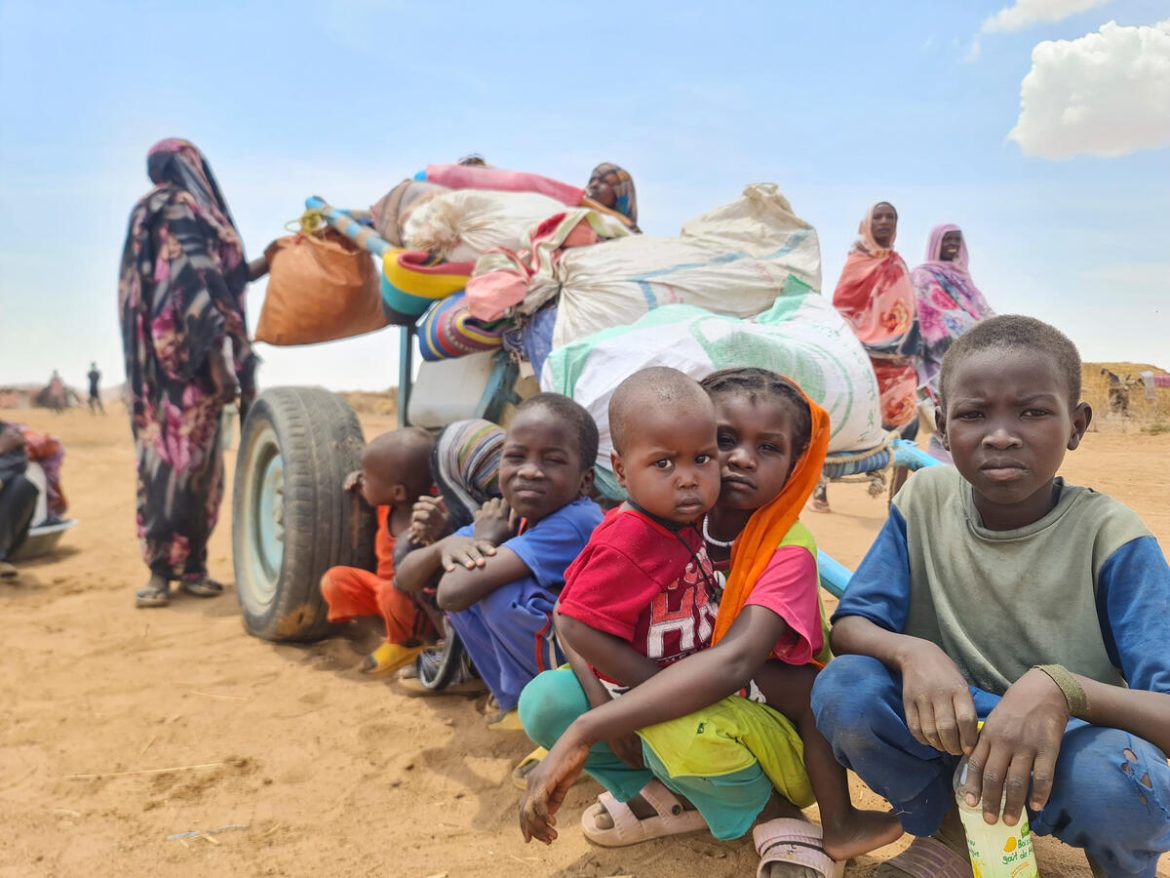The United Nations World Food Programme (WFP) has issued a stark warning that food assistance for Sudanese refugees in four neighbouring countries could be completely suspended within the next two months unless new funding is urgently secured. The agency said it needs at least $200 million over the next six months to sustain life-saving support for millions of people who have fled the ongoing civil war in Sudan.
More than 4 million Sudanese refugees have crossed into seven countries, including Central African Republic, Egypt, Ethiopia, and Libya, since Sudan plunged into a devastating internal conflict over two years ago. The war has displaced millions inside the country and forced others to seek refuge in camps and informal settlements where conditions are dire and resources are scarce.
“Unless new funding is secured, all refugees will face assistance cuts in the coming months,” said Shaun Hughes, WFP’s Emergency Coordinator for the Sudan regional crisis, during a press briefing held in Geneva on Tuesday. He stressed that operations in four of the most affected countries are already severely underfunded and on the verge of collapse.
“In the case of Central African Republic, Egypt, Ethiopia and Libya, WFP’s operations are now so severely underfunded that all support could cease in the coming months as resources run dry,” he said, noting that the timeline for cuts could be as short as eight weeks if emergency funds do not arrive.
Sudan’s civil war, which began in April 2023 between the Sudanese Armed Forces (SAF) and the paramilitary Rapid Support Forces (RSF), has not only crippled the country’s governance and economy but has also triggered one of the worst displacement crises in Africa. Many of the refugees arriving in neighbouring states come from areas in Sudan already suffering from extreme food insecurity.
A recent joint report by UN agencies warned that Sudan was now at immediate risk of famine, especially in conflict zones like Darfur, Kordofan, and Khartoum, where aid access remains limited and food markets have collapsed. Many families, especially women and children, arrive at border crossings exhausted, malnourished, and in desperate need of medical and nutritional support.
Hughes highlighted the growing concern about malnutrition among child refugees, stating that any reduction or end to food rations would significantly raise the risk of acute malnutrition, disease outbreaks, and potentially deaths in vulnerable groups. “We are looking at a rapidly worsening humanitarian situation that could spiral further out of control without urgent intervention,” he said.
The looming cuts come amid a global funding crunch that is affecting humanitarian operations worldwide. When asked why donor support had declined, Hughes cited a “broad reduction across the board,” as well as rising humanitarian needs globally, including crises in Gaza, Ukraine, the Sahel, and Horn of Africa, which have diverted attention and resources from Sudan’s regional crisis.
He also noted that although the United States remains the WFP’s top donor for the Sudan crisis, its global humanitarian funding has dropped in recent years, especially following sharp reductions during the presidency of Donald Trump. Other traditional donors, including European governments, are also struggling to maintain their commitments due to domestic economic challenges and competing foreign policy priorities.
Refugee camps in Egypt’s border towns, eastern Ethiopia, and parts of southern Libya are already reporting declining food distributions and cuts in nutritional programs. In Central African Republic, which hosts one of the smaller but highly vulnerable Sudanese refugee populations, WFP staff warn that operations may be halted altogether if the funding gap is not addressed soon.
International aid groups and UN officials have called for donor governments, private sector partners, and philanthropic organisations to step up and fill the funding gap, warning that the consequences of inaction could be catastrophic. Without food assistance, host countries—many of which are already dealing with their own crises—may be overwhelmed, further destabilising an already fragile region.
The WFP has also appealed for greater flexibility in how existing funds are allocated, allowing it to move resources more quickly to the most critical areas. In the absence of adequate support, however, ration cuts or full suspension of aid appear inevitable.
As the humanitarian crisis around Sudan intensifies, the international community faces growing pressure to respond swiftly. Aid officials warn that failure to act will not only cost lives but will also jeopardize long-term regional stability, especially if cross-border movements increase and tensions rise in host communities.
